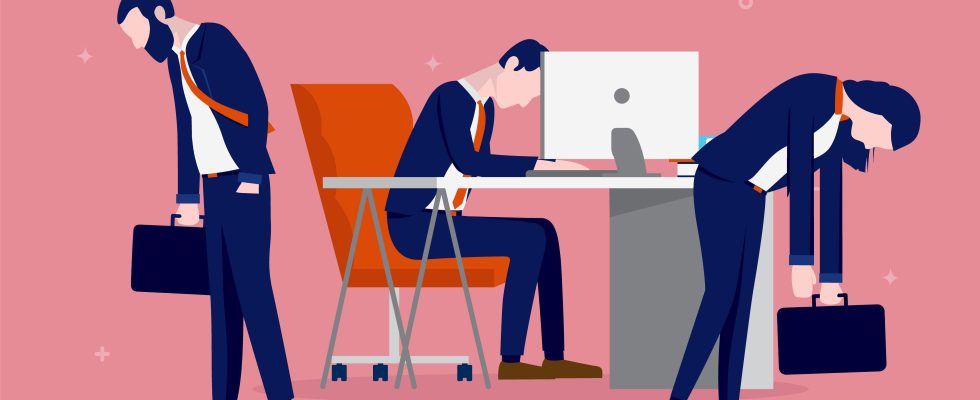Ambient depression often arrives after the end-of-year holidays. The bounty is behind us, family and friends have returned to their homes and we find ourselves at work with long days, freezing or humid cold, expenses to come, while holiday expenses still weigh heavily and future vacations are far away, in endless work corridor mode. A kind of “happy spleen post festum” for back-to-work partygoers. We still have in the head “Happy people, singing people, party people/Happy people, jamming on the party session/Oh Lord/Sing Hallelujah!”, of Dr. Alban, but it’s complicated to put it fully under the tense gaze of colleagues. And, every year, the articles on the “Blue Monday”, designated as the most depressing day of the year, are legion on the Web. This concept was invented by Cliff Arnall in 2005 and was popularized by a Sky Travel advert. Since then, the urban legend has been circulating. For Angélica Barrero Guinand, clinical psychologist and clinical corporate department leader of Ifeel, the “Blue Monday” is not based on any serious theory. On the other hand, that the month of January is hard and that we feel a loss of energy in our regions, at the height of winter, is a reality. But, according to her, it is entirely possible to live this period better.
The keys to remobilizing
“The Christmas lights are beautiful, the holidays, the friends, the family, the gifts and, suddenly, around January 7… everything stops,” describes Angélica Barrero Guinand. We lived through a timeless period, magical at times. Stop: we must get back on track. “Some find themselves more isolated, lack energy, lose libido and interest…” This may be due to “seasonal affective disorder”, which is a symptom of depression during seasonal changes, and in particular in winter, requiring treatment. But, in the majority of cases, this lack of energy comes from winter: plants and certain animals hibernate. Like them, man is experiencing a slowdown linked to nature.
How to remobilize? “We need to get back into the routine,” advises the expert. Do not force yourself to diet when it is cold and the body requires more calories, because nothing is worse than being hungry and cold. She advises guaranteeing seven to eight hours of sleep per night to recover and avoiding stimulants and alcohol in the evening to sleep better. In the morning, use light, even artificial light, to wake up well. As soon as the sun comes out, expose yourself to this natural vitamin D while forgetting your sunglasses. One small project at a time, without pressure, by changing your routine. A bit of sport ? Quietly, not thoroughly, not necessarily every day. Last advice: don’t forget your friends to break the isolation which can become structural.
Train like an athlete
Sylvain Zaffaroni, co-founder of the “good mood rooms”, campaigns for the feeling of the same name, which “is cultivated and propagated, in the evening when returning home”. The expert offers spaces in the company dedicated to this concept to pleasantly (re)awaken the five senses of employees. The latter are in fact subjected to “thousands of anxiety-provoking stimuli” and spend a lot of time at their workplace. “The office must be an oasis.” For him, good humor goes beyond well-being and from individual, it becomes collective by nourishing itself with positive contributions.
Fighting against the gray of Monday and the worries that we all know is training. “Good humor can be learned,” insists Sylvain Zaffaroni, who underlines the analogy of this experience with that of running a marathon: you start by walking 500 meters, before jogging, gradually, and continuing your effort every day. First advice: “Put yourself in a cocoon of good humor, live in the present moment, walk to work or get off a metro station first, listen to a podcast or pleasant music.” If possible, avoid distressing morning news loops and disconnect from emails and text messages.
Second advice, in the workplace, “smile, say hello even if forced, shake hands, stand up straight, open up”. Effective ? Over time, the outlook of others changes, the context of hostility or indifference changes. Positive things circulate, little by little the “hello” becomes sincere. “The main thing is to participate,” said Pierre de Coubertin. In this year of the Olympic Games of which France is the host, the main thing is to start smiling, to continue, in order to find your ray of sunshine in the grayness, and to make the most cantankerous people benefit from it!
